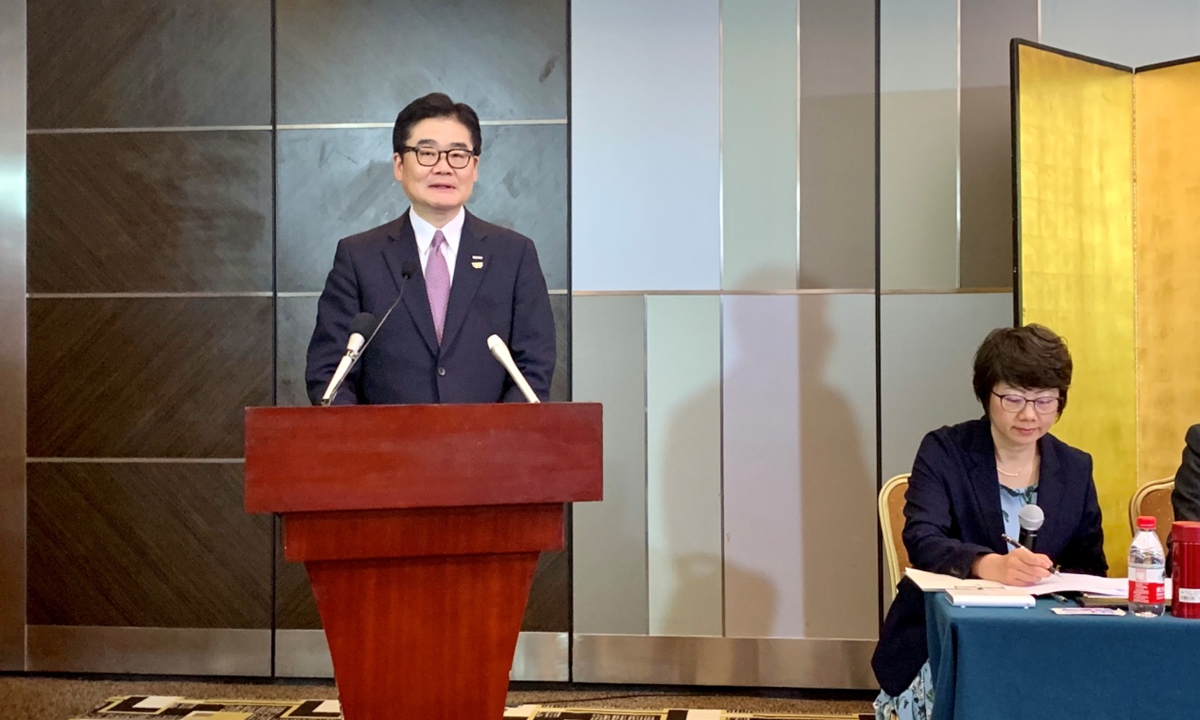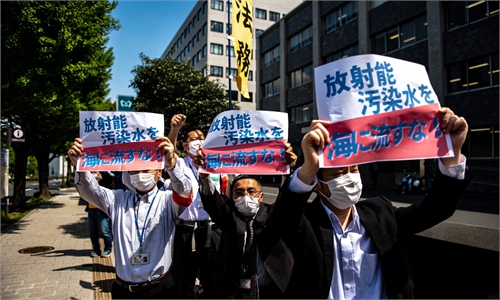Japanese companies should regard China as source of innovation: Japanese chamber of commerce

Tetsuro Homma, president of Japanese Chamber of Commerce and Industry in China Photo:Xing Xiaojing/GT
Japanese companies should regard China as an "innovative power" and "engineering power" rather than merely a "manufacturing country" or "consumer country," said Tetsuro Homma, the newly-elected president of the Japanese Chamber of Commerce and Industry in China, who also serves as the executive vice president of Panasonic Corporation, during a press conference on Tuesday.
Homma pointed out that to maintain their competitive edge and achieve sustainable growth in China, Japanese companies cannot rely solely on past approaches and ideas.
In response to the Global Times' query about the potential impact of Japan's export restrictions on chip equipment on Japanese companies' operations in China and calls for decoupling the industrial chain with China, Homma admitted he was not yet familiar with the relevant policies. However, he expressed a willingness to help relevant companies establish a communication platform between Japan and China after thoroughly reviewing the details.
"All member companies of the chamber are all interested in contributing to the economic development of the two countries," said Homma.
Homma noted that it has been 30 years since Japan's manufacturing industry first invested in China. Over this period, labor-intensive factories have gradually been replaced by capital-intensive ones, including those producing automobiles, automotive parts, materials, chemicals, electronic components, and production equipment.
Homma emphasized that with the frequent iteration of new business models, such as smart IoT appliances and mobile e-commerce, the Chinese market has become highly competitive on a global scale. To survive in China's rapidly evolving landscape, characterized by an emphasis on "innovation power" and "engineering power," the chamber must consider how best to assist Japanese companies in conducting business activities in China.
He also observed that the COVID-19 pandemic had significantly restricted personnel exchanges between Japan and China over the past three years. Consequently, there is a gap in information symmetry and understanding between citizens of the two countries, which can lead to misunderstandings. However, in their daily work, Japanese companies in China are not only facing challenges but also experiencing the vitality brought about by various innovations in Chinese society. They are deeply impressed by the speed and impact of working with China's younger generation.
There are still many business opportunities in the Chinese market, Homma stated, noting that China's reform and opening up has been going on for 45 years, and it is an undeniable fact that Japanese companies have benefited from this process of growth.
As the Chinese economy has developed, Chinese society has also undergone significant changes. Expanding solely in terms of quantity is no longer feasible. It is essential to identify specific areas to address particular issues, such as aging and green energy. Homma said that Japanese enterprises, with their rich experience and technology, can play a role in these areas.

